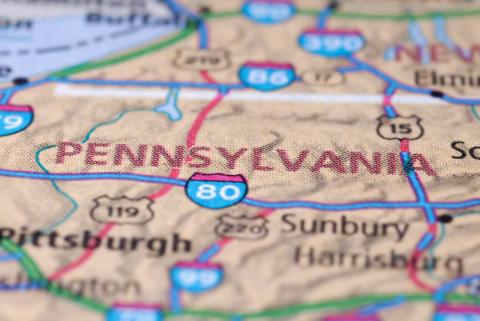https://www.youtube.com/watch?v=WRqyYokJ97c
Video Source: CBS News
The Supreme Court turned down a request by Republican state lawmakers Monday to prevent Pennsylvania’s new congressional map from being used.
The decision further upholds the Pennsylvania Supreme Court's ruling in January that the former congressional map was unconstitutional and constituted a partisan gerrymander. The court also ordered the state legislature to redraw the map by February 9 -- which it managed to do in the eleventh hour.
Now, Pennsylvania will have a new congressional map for the general election, which will have major implications on elections in the state.
Americans... And Maps: A Geography Lesson
The State Supreme Court says the political majority in the Pennsylvania Legislature packed opponents into as few districts as possible, then spread others across districts as thinly as possible to prevent them from overtaking the majority there.
The strategy is often referred to as "packing and cracking," and can produce some oddly shaped districts.
Take the 18th Congressional District, where Democrat Conor Lamb recently won a special election for a seat he will no longer represent. The old district kind of looks like a lower case "r," doesn't it?

That is not even the weirdest one. Check out the old 7th Congressional District, which was colloquially known as "Goofy Kicking Donald Duck," and was held together in one area by -- I kid you not -- a seafood restaurant. Here is how it evolved since the 1950s:

Of course, this isn’t the only case of partisan gerrymandering nor is it solely a Republican problem. Partisan gerrymandering is a two-party scheme.
On March 28, the Supreme Court will hear oral argument in a case against Maryland's congressional map, which was drawn by the Democratic majority in the legislature. In this case, U.S. District Court Judge James K. Bredar said partisan gerrymandering was "a cancer on our democracy."
We are still waiting on a Supreme Court decision in Gill v. Whitford, the first case in which a federal court ruled electoral maps unconstitutional not on the grounds of racial or socioeconomic discrimination -- but political discrimination. The decision could have a major impact on gerrymandering nationwide and future cases.
As for Pennsylvania, time will tell how the new maps will work out. It is clear though that voters want an end to the partisan games.
